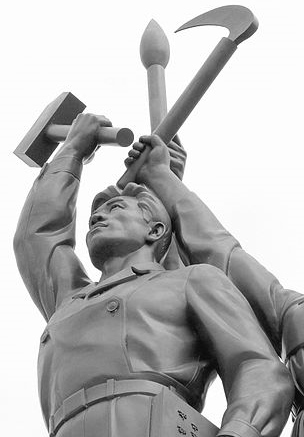and economic material and labour problems that require creative solutions to make a profit. The North Korean state’s drive for foreign investment is foundering on conditions created by North Korea itself.
First, North Korea’s instability means that Chinese investors are at risk of losing their investments when the political winds change. For instance, one Chinese investor in Dalian in 2011 planned to import snow crabs from North Korea and sell them in the three northeastern provinces of China. However, after he invested RMB650,000 (US$107,500) to establish his logistics and production line, as well as bribe relevant North Korean state-owned enterprise managers, North Korea’s fishing fleet was requisitioned by the North Korean defence department to transport Chinese rice donations. As a result, the investor suffered a large financial loss and had to re-establish his production and logistics systems.
To mitigate political risk, investors establish relationships with a variety of officials before investing. Many investors suffer from great losses when their friends in the North Korean government are purged, transferred to another position, or their relationships break down. The sudden fall of Jang Song-Thaek is no doubt causing concern to Chinese investors who hitched their wagon only to him and his networks. Thus, it is very important to expand one’s social circle in North Korea. Certain officials are put on the bribe list even if they are not directly relevant to the investor’s business, but could someday turn out to be important as the winds change. An investor based in Dalian described how he runs a car repair business in Pyongyang, and often offers free services for powerful figures when they need to repair their cars. Consequently, when he becomes familiar with these officers and gradually enters into their circle, he can have more opportunities to cooperate with these officers, thus mitigating his risk.
Second, maintaining an adequate power supply is a continuing challenge for Chinese investors in North Korea. In Pyongyang, for example, power supply is erratic and blackouts common. In November 2011, for instance, according to discussions with Chinese investors, the western part of Pyongyang suffered a power failure for more than one month. Many Chinese factories in Pyongyang have to buy truck batteries if they want a guaranteed continuous energy supply.
To ensure continuity of supply, many politically unconnected Chinese investors have to pay thousands of dollars per month in bribes to the Pyongyang electricity bureau, which is in charge of the normal power supply of nearly all of Pyongyang. In an example of political risk combining with electricity supply problems, the power supply is also supervised by the provincial people’s security department, which is hard to bribe directly with cash. In many cases security officials will ask for part of the factory’s equity instead. But even with the bribe, the security department will simply cut off the power supply of foreign factories 3–5 days per month in favour of central state and party offices, according to a Chinese investor from Dandong.
Third, investors have difficulty maximising North Korean labour productivity. For most Chinese investors running companies in North Korea, hiring North Korean labour is unavoidable. Even though North Korean workers are cheap, their working efficiency is quite low. This is particularly because most North Korean labourers do not have enough physical strength to engage in high-intensity work, and the workers are always under the supervision of political staff, who require them to engage in political study sessions for two hours or more per day. It is also difficult to train North Korean workers, because they cannot communicate directly with Chinese technical staff.
Many Chinese investors try to reduce their dependence on North Korean workers or even avoid hiring them entirely by running small businesses, like vehicle maintenance and repair, catering (restaurants) and retail trade (stores). In doing so, investors can hire a few Chinese staff in China and transfer these staff to their companies in North Korea. Even though the cost of Chinese labour is higher, Chinese workers are seen as more reliable and effective. Investors can also hire overseas Chinese workers in North Korea itself.
Large Chinese investors, for whom using North Korean labour is unavoidable, try to promote labour efficiency. For example, large Chinese investment companies often bribe the North Korean labour committee (which is in charge of the selection of workers in foreign factories to ensure these workers have good political backgrounds) to get better labour (young male workers in good physical condition). Many Chinese investors also provide enough food to their workers themselves, and sometimes give them food for their families to guarantee they have enough physical strength to work.
Economic relations between the DRPK and China are deepening, and Chinese policymakers are adamant that the only way forward for North Korea is market reform and opening up, including opening up to outside investment. Yet the challenges faced by Chinese investors in North Korea are significant, and the pool of businesspeople willing to put up with political and economic risk at the levels asked of them by North Korea is not infinite.
Yaohui Wang is a student in Asian Studies and Justin Hastings a Senior Lecturer at the Department of Government and International Relations, the University of Sydney.

